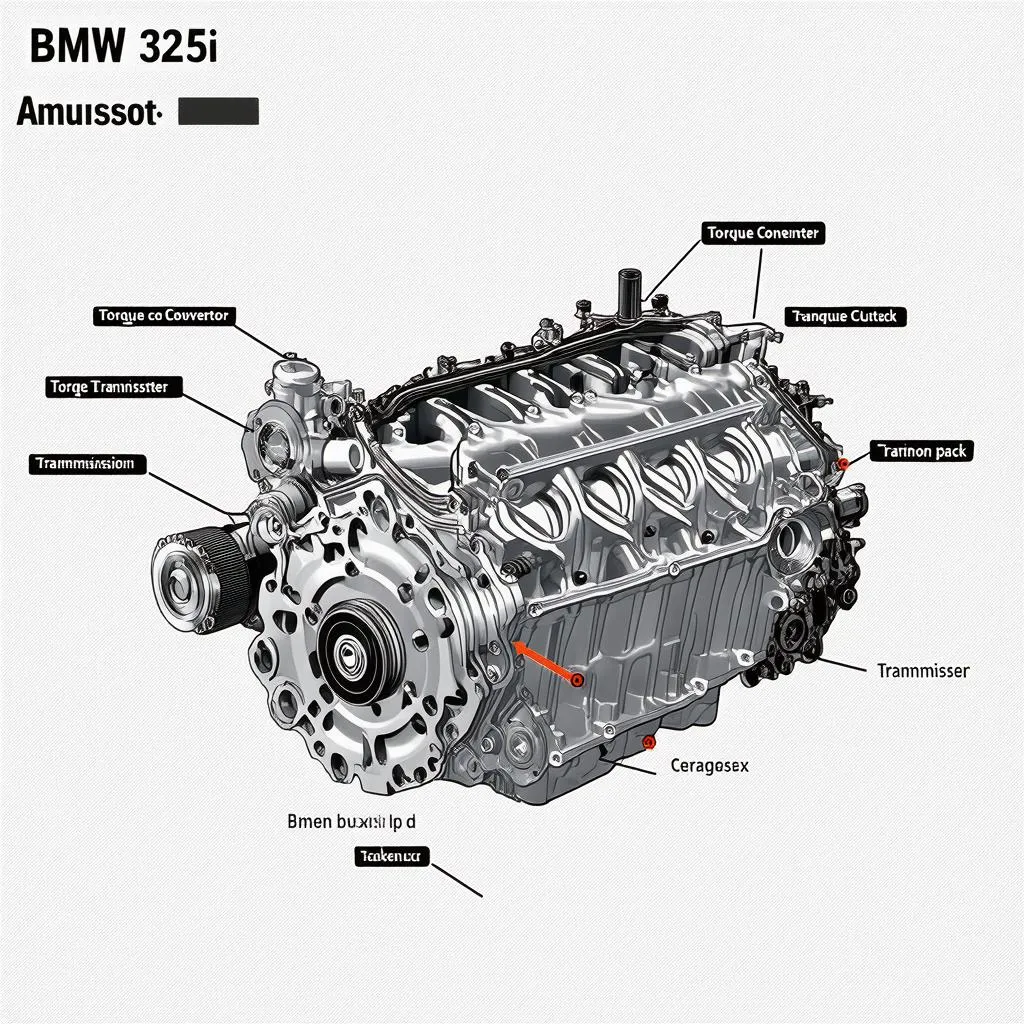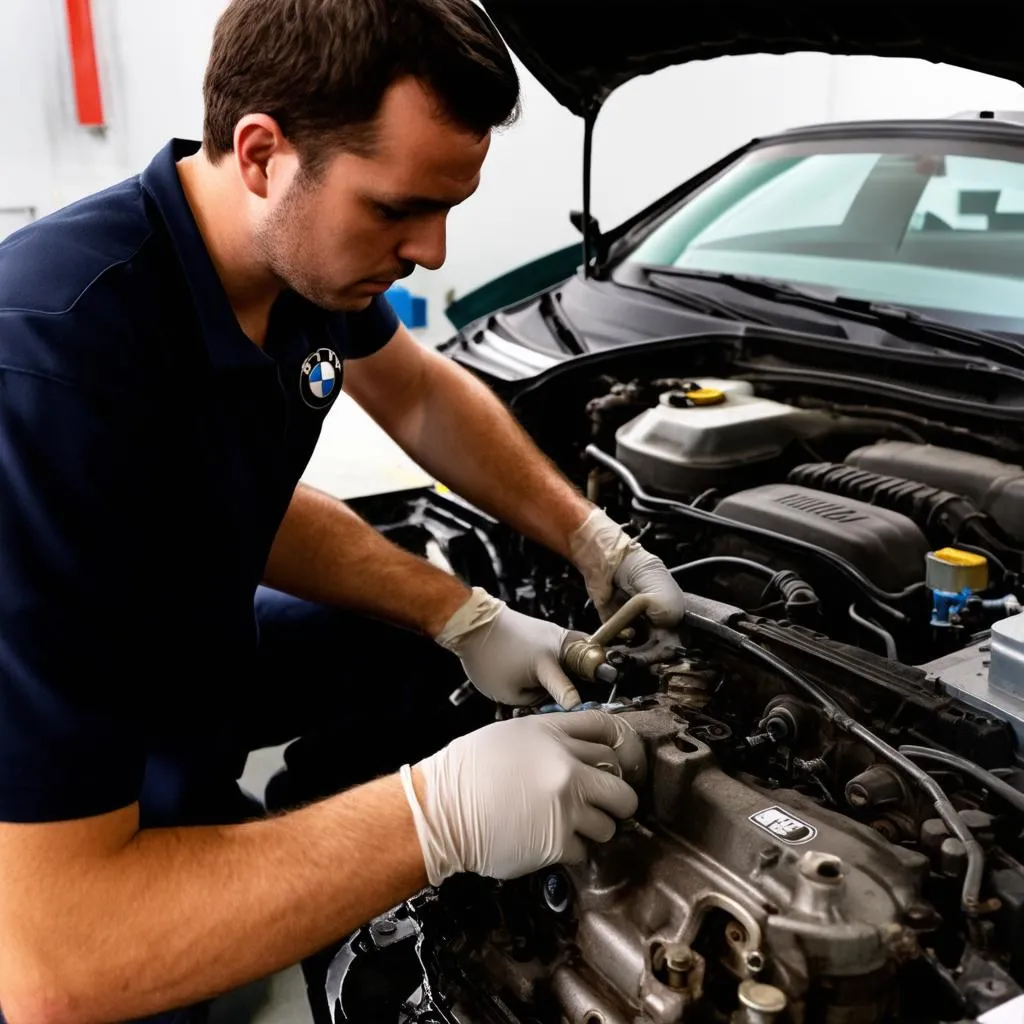BMW 325i Transmission: Everything You Need to Know
Ever felt like your BMW 325i was struggling to shift gears smoothly? Or maybe it’s making some concerning noises? You’re not alone. Many BMW 325i owners face transmission issues at some point. The transmission is the heart of your car, and understanding how it works can help you troubleshoot problems and prevent costly repairs. In this article, we’ll delve into the world of Bmw 325i Transmissions, exploring everything you need to know, from the basics of its operation to common issues and maintenance tips.
The Significance of a Smooth Transmission
Imagine cruising down a scenic highway, the wind in your hair, and the sun on your face. But suddenly, a jarring shift throws you off balance, disrupting the peaceful flow of your journey. This is the kind of experience a malfunctioning transmission can bring. A smoothly functioning transmission ensures a comfortable and efficient driving experience. It’s crucial for performance, fuel efficiency, and overall vehicle longevity.
Understanding the BMW 325i Transmission: A Deep Dive
The BMW 325i transmission is a complex system with multiple components working in harmony. Let’s break it down:
Types of Transmissions:
- Automatic Transmission: The most common type, automatic transmissions offer seamless shifting and convenience. They utilize a hydraulic system to shift gears, freeing you from manual shifting.
- Manual Transmission: Manual transmissions require the driver to shift gears using a clutch pedal and shifter. These transmissions are often associated with more control and an engaging driving experience, but they require more effort and skill.
Common Components:
- Torque Converter: This crucial component allows for smooth acceleration and efficient transfer of power from the engine to the transmission. It essentially acts as a hydraulic clutch, smoothly connecting the engine to the transmission.
- Valve Body: The brain of the transmission, the valve body controls hydraulic pressure and regulates fluid flow, directing the transmission through its gear changes.
- Gearbox: Housing the gears, the gearbox allows the vehicle to shift seamlessly through various speeds.
- Clutch Pack: In automatic transmissions, the clutch pack is responsible for engaging and disengaging gears, similar to the clutch pedal in a manual transmission.
- Fluid: Transmission fluid plays a vital role in lubricating and cooling the transmission, ensuring smooth operation and preventing wear and tear.
Common BMW 325i Transmission Issues:
- Slipping: This issue indicates a problem with the clutch pack, often caused by worn-out components or low transmission fluid.
- Rough Shifting: This can be attributed to issues with the valve body, solenoid problems, or worn-out gears.
- Noisy Transmission: Grinding, whining, or clunking noises usually point to a faulty gear, bearing failure, or low transmission fluid.
- Transmission Failure: This is the most severe issue, typically caused by neglect, overheating, or excessive wear and tear.
Expert Insights:
“A common problem in the BMW 325i transmission is the failure of the torque converter,” says Dr. Mark Williams, an acclaimed automotive engineer, “This can lead to slipping or rough shifting.” He suggests regular maintenance and proper fluid checks to prevent such issues.
Preventive Measures:
- Regular Transmission Fluid Changes: Following the manufacturer’s recommended schedule for fluid changes is essential for preventing transmission issues.
- Proper Driving Habits: Avoid harsh acceleration, sudden braking, and excessive towing, as these can put extra stress on the transmission.
- Regular Inspections: Having your transmission inspected by a qualified mechanic at least once a year can help catch minor issues before they become major problems.
Troubleshooting Tips:
If you’re experiencing transmission problems, here are some things you can do:
- Check the transmission fluid level: Low fluid is a common cause of transmission issues.
- Listen for unusual noises: Grinding, whining, or clunking sounds can indicate a problem.
- Observe the transmission’s shifting pattern: Is it slipping, jerky, or delaying?
- Check the transmission control module: This module can also cause transmission issues.
Remember: If you’re experiencing serious transmission problems, it’s best to take your car to a qualified mechanic for diagnosis and repair.
What to do if your BMW 325i Transmission fails?
If your transmission fails, don’t panic! Here’s what you should do:
- Call a tow truck: Tow your vehicle to a qualified repair shop.
- Get a diagnosis: The mechanic will inspect your transmission and determine the cause of the failure.
- Get a repair estimate: The mechanic will give you an estimate of the repair costs.
- Make a decision: Decide whether to repair the transmission or replace it.
- Complete the repairs: If you choose to repair the transmission, the mechanic will complete the repairs.
Transmission Replacement:
If your transmission is beyond repair, you’ll need to replace it. This is a major repair, and it can be costly.
- Reconsidered Transmission: You can choose to have your transmission rebuilt with new parts, which is usually cheaper than a new transmission.
- New Transmission: You can opt for a brand-new transmission, which will be more expensive but come with a warranty.
Is there a connection between Feng Shui and BMW 325i Transmission?
While there’s no direct connection between Feng Shui and the mechanical workings of a car, the concept of chi, or energy flow, can be applied metaphorically. A healthy transmission ensures smooth and efficient energy flow within the vehicle, just as balanced chi promotes harmony in your life.
Common User Questions:
Q: What is the average lifespan of a BMW 325i transmission?
- A: With proper maintenance, a BMW 325i transmission can last for 150,000 miles or more.
Q: How much does it cost to repair a BMW 325i transmission?
- A: The cost of transmission repairs can vary widely depending on the severity of the issue and the type of repair needed.
Q: What are some signs that my BMW 325i transmission is failing?
- A: Some common signs of a failing transmission include slipping, rough shifting, noisy operation, and complete failure.
Q: What should I do if my BMW 325i transmission is leaking fluid?
- A: If your transmission is leaking fluid, it’s important to take your car to a mechanic for diagnosis and repair as soon as possible.
Q: Can I drive my BMW 325i with a leaking transmission?
- A: It’s generally not advisable to drive your car with a leaking transmission as this can lead to further damage.
Q: What are some things I can do to prevent transmission problems in my BMW 325i?
- A: Some things you can do to prevent transmission problems include regularly changing the transmission fluid, avoiding harsh acceleration and braking, and having your transmission inspected by a qualified mechanic at least once a year.
Related Products:
- BMW Diagnostics Tool: This tool can help you diagnose and troubleshoot transmission problems in your BMW 325i. Click here to learn more about BMW Diagnostics Tools
- Transmission Fluid: Using the correct type of transmission fluid is essential for keeping your transmission in optimal condition.
Related Vehicles:
- BMW 3 Series (all models)
- BMW 5 Series
- BMW X3
- BMW X5
Other Relevant Articles:
- How to Calculate BMW Transmission Codes
- Understanding BMW Error Codes
Call to Action:
Need help with your BMW 325i transmission? Contact us on WhatsApp: +84767531508. Our team of expert technicians is available 24/7 to assist you with all your diagnostic needs. We can help you diagnose and fix transmission problems, ensuring your BMW is running smoothly again.
Remember: A smooth-running transmission is essential for a pleasurable and efficient driving experience. By understanding your BMW 325i transmission and taking proper care of it, you can ensure many happy miles on the road.
Please share your thoughts and experiences with BMW 325i transmissions in the comments section below.
 BMW 325i transmission diagram
BMW 325i transmission diagram
 BMW 325i transmission repair
BMW 325i transmission repair
 BMW 325i transmission fluid change
BMW 325i transmission fluid change
